Independence and quality of life are 2 crucial things, especially as one ages. Instrumental activities of daily living (IADLs) are the daily tasks at the heart of this independence. These activities serve as the building blocks that enable us to live self-sufficiently and with dignity. IADLs include:
- Managing finances
- Handling transportation
- Preparing meals
- Housekeeping and home maintenance
- Managing medications
- Using communication devices
There comes a point in some senior’s lives where they can’t manage all these things safely or successfully by themselves. For example, an older adult could develop mobility issues and be unable to operate a vehicle safely to get groceries. Fortunately, there are often support systems that can help seniors maintain their independence—some examples are assisted living communities or in-home support services.
A Detailed Look at the 6 IADLs
You’ve likely heard the term activities of daily living (ADLs). These are the things a senior does daily to care for their physical needs, such as eating, bathing, or bathing. On the other hand, IADLs are typically more complex activities connected to an individual’s ability to live independently.
Managing Finances
Managing finances involves being able to handle money, pay bills, budget, and manage investments. Practical examples include balancing a checkbook, using online banking services, and ensuring timely payment of utilities. Financial independence is a cornerstone of autonomy and security.
Handling Transportation
Transportation is more than just driving—it encompasses the ability to use public transportation, call a taxi, or even ride-sharing services like Uber and Lyft. This IADL includes safely navigating routes, understanding schedules, and ensuring timely arrival at their destination.
The ability to shop involves planning, decision-making, and carrying out transactions. This activity ensures that individuals can procure food and other necessities, contributing significantly to their safety and quality of life.
Preparing Meals
Meal preparation requires planning, cooking, and serving nutritious meals. It involves understanding dietary needs, following recipes, and maintaining kitchen safety. Preparing meals is an integral part of daily living that can impact health and social interactions.
Housekeeping & Home Maintenance
Keeping a living space clean and functional is essential for a healthy and comfortable life. Housekeeping includes tasks like vacuuming, dusting, laundry, and minor home repairs. A well-maintained home environment promotes physical health and mental well-being.
Managing Medications
Managing medications involves knowing what medications to take, when to take them, and understanding potential side effects. Proper medication management is critical for managing chronic conditions and overall health.
Using Communication Devices
The ability to use communication devices like phones, computers, and tablets is vital in today’s digital age. This IADL encompasses making phone calls, sending emails, and using social media to stay connected with family, friends, and the broader community.

The Role of IADLs in Health & Well-being
While they aren’t the only thing that indicates a senior’s ability to live independently, IADLs can indicate an individual’s ability to live independently and navigate daily life without assistance.
- Physical health: Regularly engaging in IADLs can help maintain physical strength, dexterity, and coordination. Activities like meal preparation and housekeeping involve movement, contributing to overall fitness.
- Mental health: Successfully managing IADLs fosters a sense of accomplishment and self-worth. It reduces stress and anxiety associated with dependency on others.
Healthcare professionals often assess IADLs to determine the level of care an individual might need. These assessments help when creating personalized care plans and interventions, ensuring that individuals receive the support they need to maintain independence.
Challenges & Solutions
Common challenges include physical limitations, cognitive impairments, and emotional barriers. Here are some practical solutions:
- Physical limitations: Adapt living spaces for accessibility, use assistive devices, and engage in physical therapy to improve mobility.
- Cognitive impairments: Simplify tasks, use memory aids like calendars and reminders, and provide clear, step-by-step instructions. Memory care may be an ideal senior lifestyle option if cognitive impairments are affecting a senior’s ability to perform their IADLs.
- Emotional barriers: One might not consider emotional barriers as something that would hinder a senior’s ability to perform their IADLs. Consider a senior who is experiencing depression or anxiety from social isolation. Someone dealing with these struggles may be unable to do things like keep a clean home or prepare nutritious meals. Encourage social interaction, offer emotional support, and involve individuals in decision-making to boost confidence and motivation.
Technology & IADLs
Technology is transforming the way we approach IADLs, offering innovative solutions to enhance independence:
- Smart home devices: Devices like smart speakers, automated lighting, and smart thermostats can make managing home environments simpler and safer.
- Health monitoring: Wearable devices and health apps help monitor vital signs, medication schedules, and physical activity, providing real-time feedback and alerts.
- Communication tools: User-friendly interfaces on smartphones, tablets, and computers enable convenient communication and access to information, reducing isolation and enhancing connectivity.
- Online services: E-commerce platforms, online banking, and virtual medical consultations bring essential services to the fingertips, making tasks more manageable and convenient for seniors.
Don’t Go Without the Support You Need
IADLs are crucial for maintaining independence, promoting health and well-being, and enhancing overall quality of life. Individuals can often continue living autonomously with dignity and confidence by understanding the 6 key IADLs, their role in daily living, and utilizing technology to overcome challenges.It’s never a bad thing to consider the future, though. Call our team at All American Senior Living at Wareham today to book a community tour. We’re happy to show you or your loved one how our compassionate caregivers can help maintain a sense of autonomy and independence.



